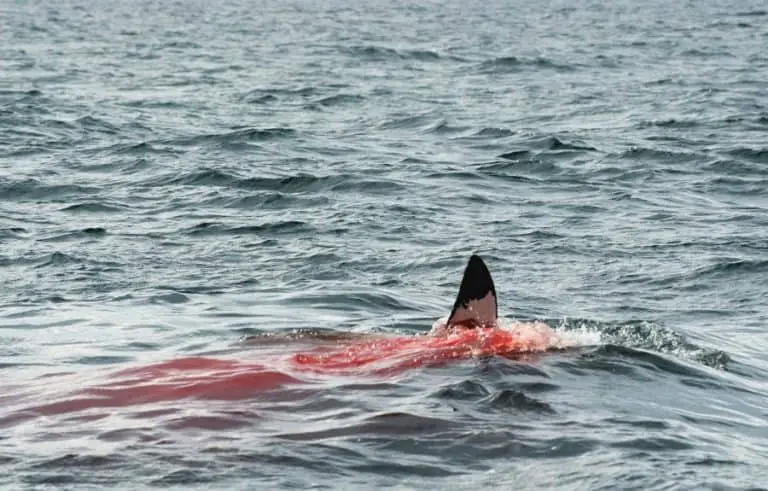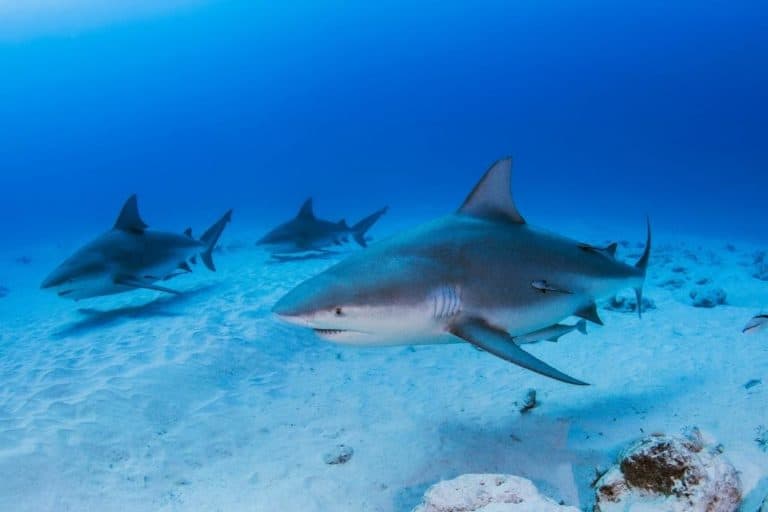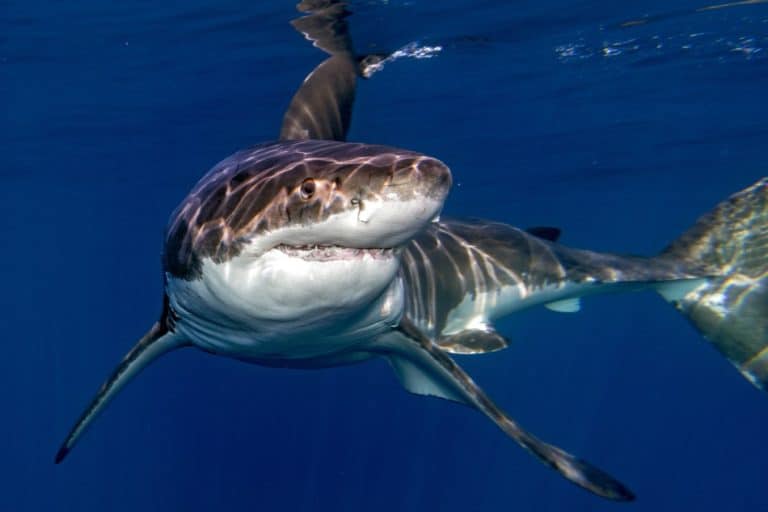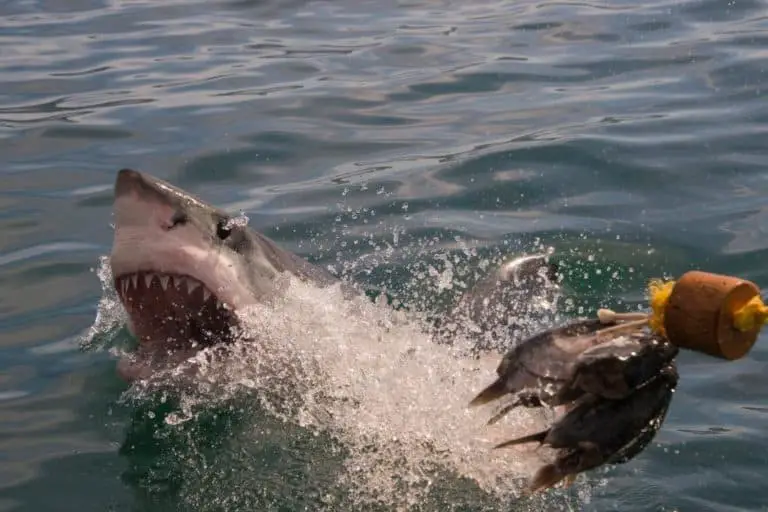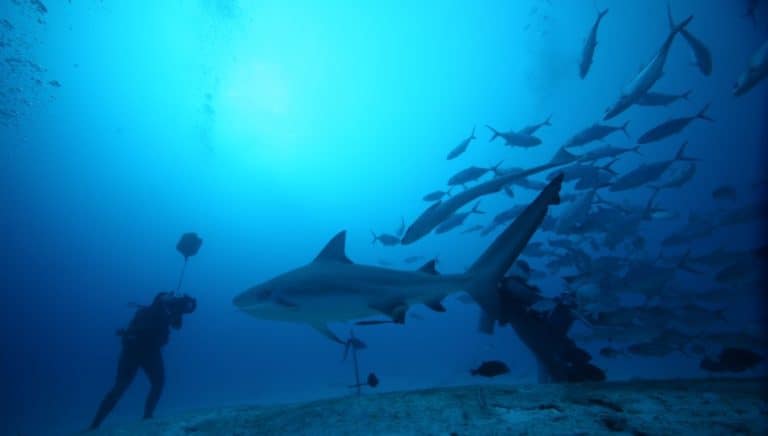Do Sharks get Tired of swimming?
This is one of the most often asked questions by beachgoers. They may have seen sharks in an aquarium or at SeaWorld, but their memories are mainly based on what they’ve read in popular publications, which aren’t always scientifically accurate.
When people think about it logically, they know that swimming is much more than a form of transportation for the shark.
It is also an essential part of feeding, growth, maturation, reproduction, and defense. So it’s reasonable to assume that sharks are not likely to get tired of swimming.
However, many people would argue this point. They believe that sharks must occasionally rest because they can’t keep swimming indefinitely without taking a break, just like humans.
Sharks don’t get tired like we do because they can move in three dimensions (swim vertically and hover), unlike fish that only move forward with an undulating motion. While this certainly helps sharks conserve energy, it’s not the primary explanation for why they can swim continuously.
Why don’t Sharks get Tired of swimming?
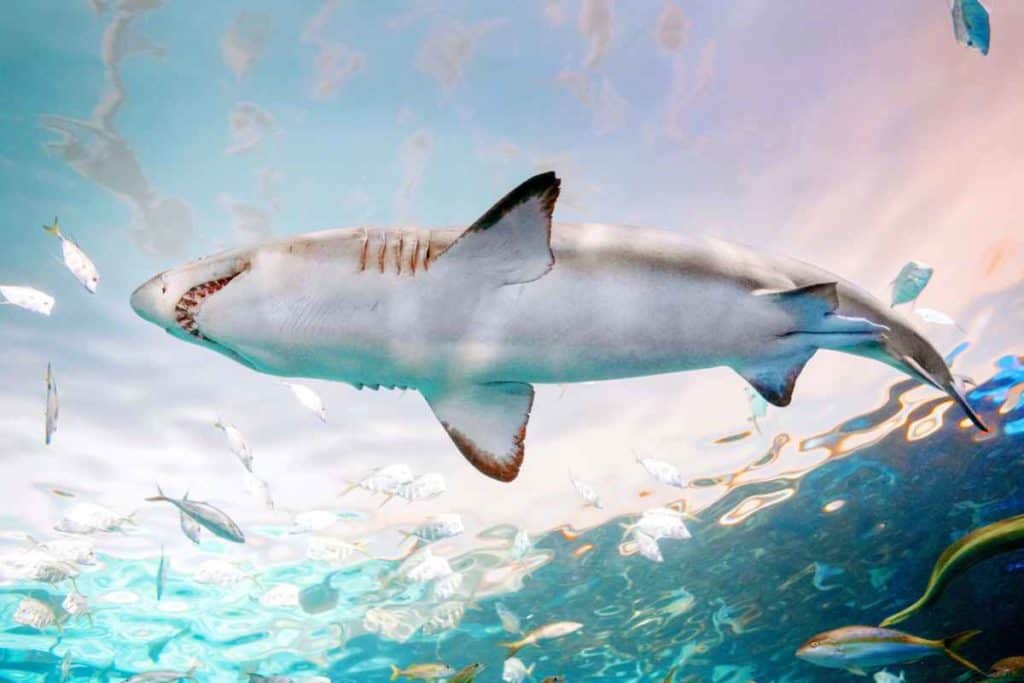
The secret lies in what scientists call a rete mirabile, an intricate concentration of arteries and veins that provide muscles with a constant supply of oxygenated blood even when a shark is resting at the bottom.
In fact, these vessels are so efficient that they account for more than 25% of the shark’s total blood volume. This allows sharks to swim at slow speeds without losing strength even after long periods.
It also explains why female nurse sharks have been observed swimming near the bottom of a cave while pregnant for several months before giving birth.
We can conclude that while it’s true that sharks must keep swimming to survive, it is false to think they get tired. Sharks swim as much as they need to and no more than that.
How do sharks sleep if they can’t stop swimming?
In humans, sleep is a complex and necessary physiological process composed of two main phases: non-rapid eye movement (NREM) and rapid eye movement (REM).
We are in a deeper sleep during NREM, where the brain’s activity decreases to 5% from its active waking state.
When we go into REM, we experience dreaming, and the brain activity jumps to 30% of its waking levels.
So, sharks sleep as other animals do: they alternate between NREM and REM phases. This is also true for dolphins, whales, seals, and most fish.
However, since sharks do not have a recognizable bone structure (their skeleton is made entirely of cartilage), it is difficult to determine if they are sleeping or just resting.
Many studies on this topic contradict each other, but scientists agree that sharks may stay motionless for hours during the day and night, which could be a way of conserving energy.
Some species may sleep with their eyes open, but this cannot be confirmed because of the lack of scientific evidence.
What do scientists have to say?
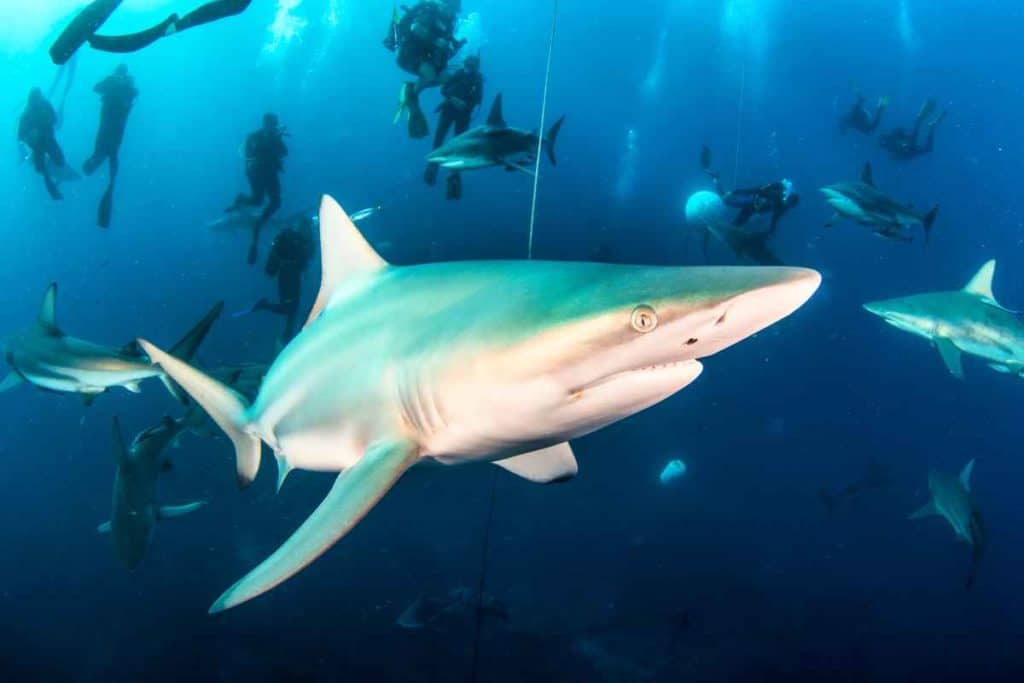
Some scientists speculate that sharks go into a state similar to REM sleep (called “tonic immobility“).
They connect this hypothesis with strange circling behavior observed in some species when placed on their backs.
If you remember your biology classes, invertebrates, like fish and crustaceans, cannot maintain their balance out of the water because they do not have a stable position in the environment. They need gravity to sit upright.
This also explains why it is so difficult for divers to catch sharks by grabbing them on the tail: it’s hard to hold onto something that doesn’t have a stable position.
When these animals are placed on their backs and try to get up, they enter into a dizzy state that makes them look like they’re “drunk” or even “stoned.” This is called the tonic immobility reflex, and it’s what you see in this video:
So far, sharks have been observed going into tonic immobility while resting on the bottom of a pool during a laboratory study. This state might be a form of sleep, but nothing can be said for sure at this point.
What is shark sleep like?
There’s no way to describe all shark species’ sleep habits because they’re all different.
Most sharks have in common that they can’t actively pump water over their gills, so they need to keep moving relentlessly to breathe. Some sharks sleep while swimming, others while resting on the bottom of their habitat.
Some sharks can pump water over their gills even when they’re sleeping, which means that they don’t have to keep moving relentlessly to breathe.
Do all sharks sleep?
Not necessarily. Sharks don’t have eyelids, and some sharks can’t control the muscles that close their mouths. These sharks would essentially be out of commission if they fell into a deep sleep for hours at a time as we do.
How long do sharks sleep?
Like humans, many shark species will only get a few hours of rest per day (or even less). The spiny dogfish shark is a prime example.
These sharks engage in short, deep dives during which they rest and replenish oxygen levels in their muscles and brain.
This kind of sleep is different than what humans experience because it’s controlled by biological functions that come into play automatically, rather than through conscious effort on behalf of the shark.
So even if a spiny dogfish is in an aquarium, it will continue to have these episodes of deep sleep without being disturbed.
Sharks can lock their mouths shut so they can rest without sinking to the bottom of the ocean.
When do sharks sleep?
Sharks typically engage in short bouts of activity followed by more extended periods of rest. In general, sharks will sleep after being active for a specific time and just before another bout of exercise.
This tends to be different from one species to the next. For example, spiny dogfish sharks usually fall into a state of torpor during the day and become active at night.
On the other hand, the swell shark will rest during the day and be active at night.
Can sharks dream?
It’s possible, but we don’t know for sure. A shark’s brain functions the same way humans do when it enters REM sleep (Rapid Eye Movement).
REM sleep is the part of our sleep cycle during which we dream. So, if sharks do dream, it’s likely they would be dreaming of their typical day-to-day activities like hunting and navigating.
Can sharks drown?
Sharks are air-breathers, so it is hard to say whether they can die of drowning.
Technically, sharks have lungs and therefore require oxygen to breathe the same way humans do.
However, since water contains much more dissolved oxygen than the same volume of air does, aquatic animals can extract much more oxygen from water than they are from perspective.
This is probably how sharks limit the amount of time they need to surface, once every few minutes during the day or a few times per hour at night.
That being said, while an individual shark may live for several hours out of the water, it would eventually drown in the air.
